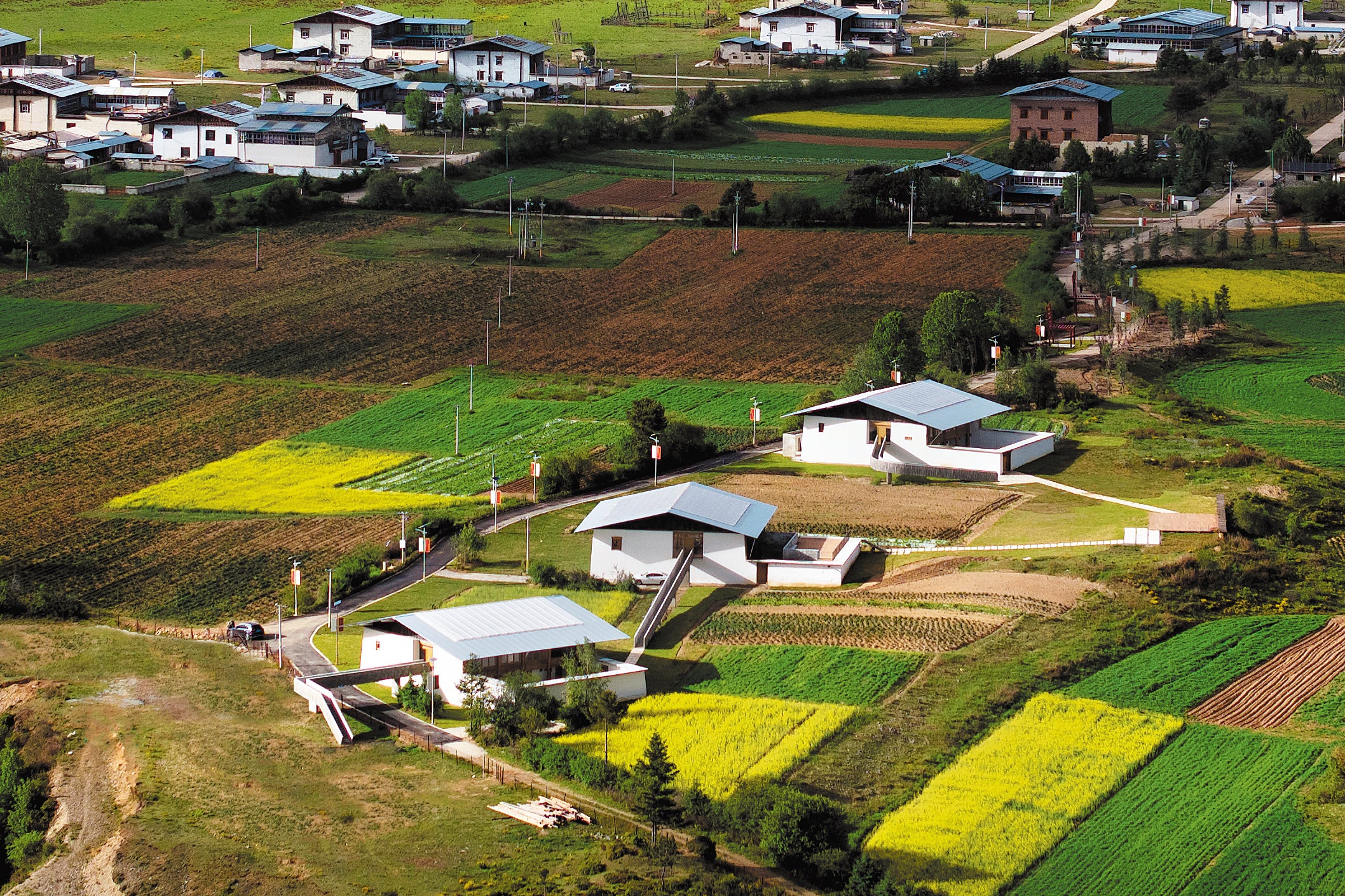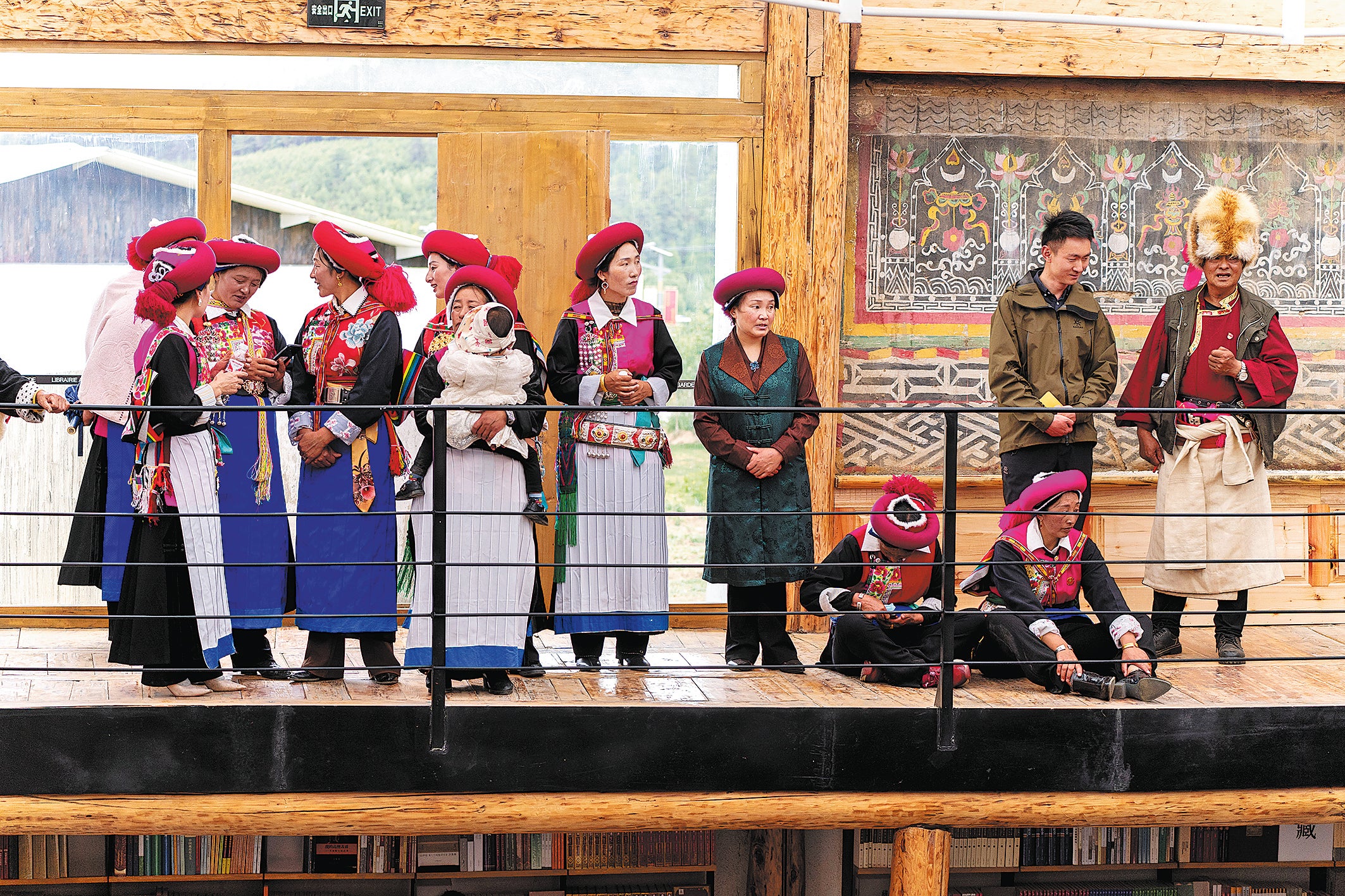Rural bookstore shares story of Tibetan culture
THE ARTICLES ON THESE PAGES ARE PRODUCED BY CHINA DAILY, WHICH TAKES SOLE RESPONSIBILITY FOR THE CONTENTS

About seven years ago, 33-year-old Tsering Dondrub, a business owner in Shangri-La county, Diqing Tibetan autonomous prefecture in Southwest China’s Yunnan province, purchased three traditional Tibetan houses in Wugong village, Xiaozhongdian town of the county, a half-hour drive from downtown area.
The three freestanding houses built nearly half a century ago had been unused for five years and would maintain this status for another three years until a bookstore brand moved in for its new branch.
Shangri-La was a key staging post in the Yunnan-Xizang branch of the Ancient Tea-Horse Caravan Route, a trade route that started in the Tang Dynasty (618-907) and prospered in the Ming and Qing dynasties (1368-1911) connecting Pu’er in Yunnan with Lhasa in today’s Xizang autonomous region.
Tsering Dondrub has been running the business of making and selling traditional Tibetan products both online and in shops since 2009. By 2021, with integrated businesses, including rural tourism, iron products and ethnic cultural products, he has seen revenues exceed 7 million yuan (£750,030).
He bought the three old houses seven years ago, not far from a reservoir, with plans to renovate them into hostels. However, by 2020, Tsering Dondrub had still not found a partner who was willing to renovate the three houses, which otherwise would be torn down.
In May 2020, Chinese bookstore brand Librairie Avant-Garde, headquartered in Nanjing, Jiangsu province, opened its new branch in a village in Shaxi ancient town of Dali Bai autonomous prefecture, Yunnan. Its founder Qian Xiaohua and rotating chairman Zhang Ruifeng soon started looking for other opportunities in the province.

When Tsering Dondrub first showed them the three ramshackle Tibetan houses, they were quite impressed, but there were dozens of such houses nearby. A year later, when they viewed the houses again, Qian decided to rent them. They invited architect Zhao Yang to design the renovation plan.
Zhao, a graduate of Tsinghua University and Harvard University, is now based in Dali. For years, he has been trying to put his architectural idealism into practice — to talk to nature with an open mind.
In 2022, when Zhao first saw the three rundown Tibetan houses standing in the field, he says he felt that the place fitted the bookstore’s brand ethos.
Typical of traditional Tibetan houses in Shangri-La, the three houses represented the architectural system established by people who had lived there for hundreds of years.
Zhao was surprised to find that the wooden structure of the three houses is different from those of the houses of the Han people in their building logic.
In the wooden structure of a Han house, the pillars on the ground and first floors are often a single piece of wood. However, the pillars on the ground floor of a Tibetan house were shorter, more slender and simpler than those on the first floor. The ground floor was inhabited by livestock and the first floor by people.
“That is fascinating for an architect like me, who grew up with a modern architectural education. I see it as a precious anthropological legacy that we should carefully preserve,” he says.
The three houses were renovated for different purposes — books, coffee and creative cultural products.
“We tried our best to preserve all the wooden structures in the original space,” Zhao says.
“We made the smallest changes to the inner structure, so the first floor of the cafe is like a museum of the traditional residences in Shangri-La. We lifted the roof to let light in and brighten the residence.”
Offering a view of the Haba Snow Mountain across the Jinsha River, the upper stream of the Yangtze River, the bookstore houses 15,000 books on humanities and social sciences and 100 types of creative cultural products with local elements. Readers can also find books about local cultures, geography, languages and history.
“It’s great that there are so many books about Tibetans and Shangri-La at the bookstore. These books can connect different cultures,” Tsering Dondrub says.
